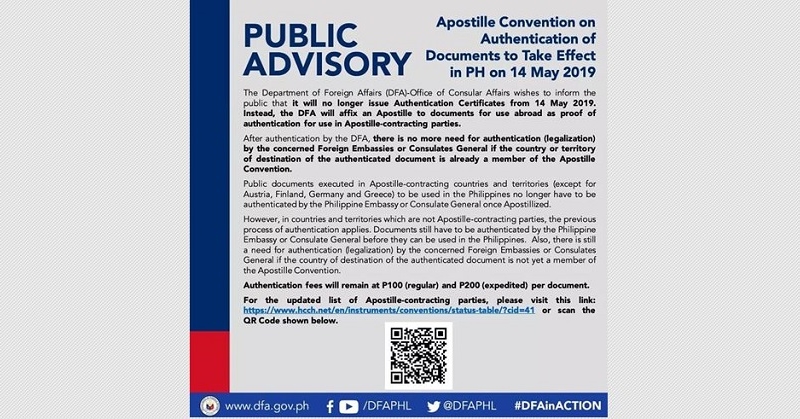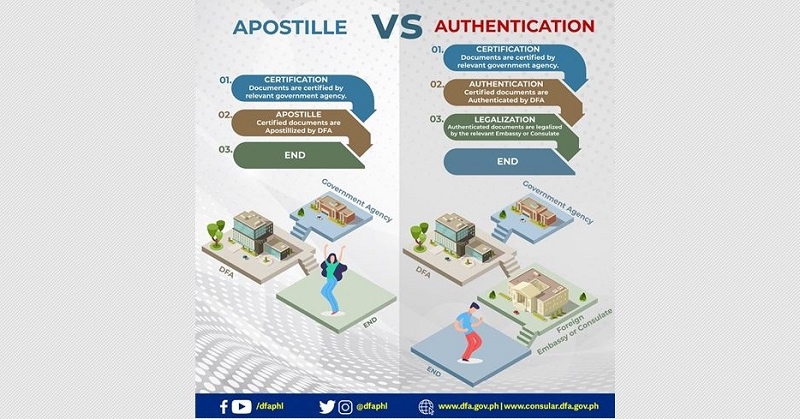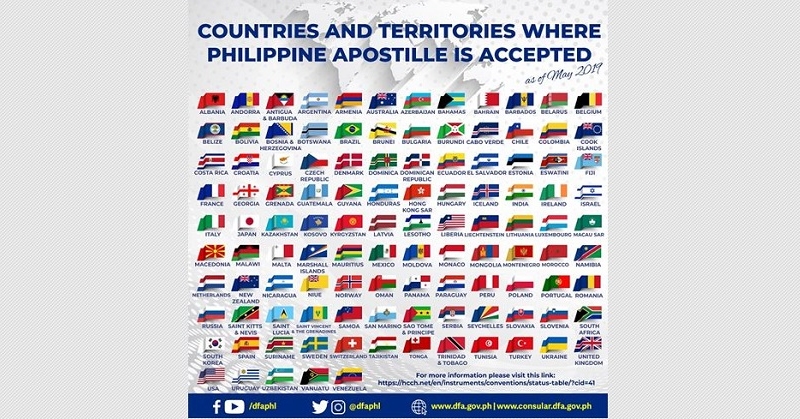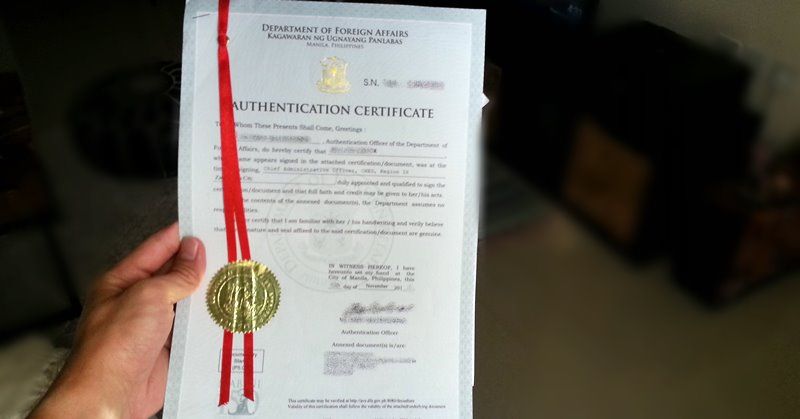To work or study abroad, Filipinos need to have their documents certified and authenticated by the Department of Foreign Affairs (DFA) as well as the Embassy of their country of destination. This usually involves getting an Authentication Certificate or a “red ribbon.”
ALSO READ: DFA Releases Job Advisory for OFWs in UAE
Recently, however, the DFA Office of Consular Affairs has announced that it will no longer issue the red ribbon. Instead, it will affix an “Apostille” to documents that will be used abroad, specifically in countries that are part of the Apostille Convention. More on this below!
Public Advisory: Apostille Convention on Document Authentication Takes Effect in PH
On May 14, the Philippine officially became part of the Apostille Convention, along with other countries from around the world. Starting this day, Philippine documents that will be used overseas will no longer need a red ribbon, but rather an Apostille instead.
But what exactly is an Apostille? Similar to the red ribbon, it is a certificate that authenticates the origin of a public document. In other words, it certifies the “authenticity” of the signature of the person or seal of authority affixed on the document.
The Apostille also applies to the same types of documents that needed authentication before the Apostille Convention became effective in the Philippines.

That being said, what makes the Apostille different is that enables documents to be used in other countries that are also part of the Apostille convention. Basically, it “streamlines” the authentication process, leading to less cost, quicker processing time, and greater convenience.
As soon as a Philippine public document gets “Apostillized,” it no longer needs to be authenticated or legalized by the Embassy or Consulate General of the country of destination — assuming that the said country is also a member of the Apostille Convention.
Correspondingly, public documents from other Apostille-contracting countries (except for Austria, Finland, Germany, and Greece) that will be used in the Philippines no longer need to be authenticated by the Philippine Embassy or Consulate General once these are Apostillized.

As for the cost, authentication through Apostille remains at PHP 100 for regular processing (released after four working days) and PHP 200 for expedited processing (released the following working day) per document.
In the Philippines, the Apostille may be availed at DFA Aseana, DFA NCR-Northeast, DFA NCR-East, DFA NCR-West, DFA NCR-South, and DFA San Fernando, Pampanga. It will also be available at DFA Cebu and DFA Davao.

ALSO READ: DFA Cautions OFWs Against Online Human Trafficking Scheme
What about countries that aren’t part of the Apostille Convention?
In countries that are not part of the Apostille Convention, the previous process of authentication still applies. Philippine documents need to be authenticated or legalized by the Embassy of the country of destination. Likewise, foreign documents need to be authenticated by the Philippine Embassy or Consulate General before being used in the Philippines.
If your document will be used in a country that isn’t part of the Apostille Convention, you will still need to present it to the Embassy of the said country for authentication or legalization. To be certain, it is recommended that you:
- Contact the Embassy or Consulate of the country you’re going to and find out your options; and
- Ask the recipient of your document whether an Apostille is needed in your case.
DISCLAIMER: The details presented above are for information-sharing purposes only. To know more about authenticating your documents through Apostille, please visit the official website of the Department of Foreign Affairs (DFA).
